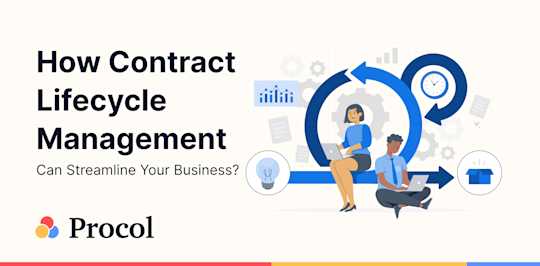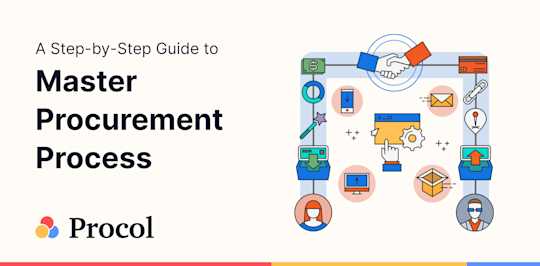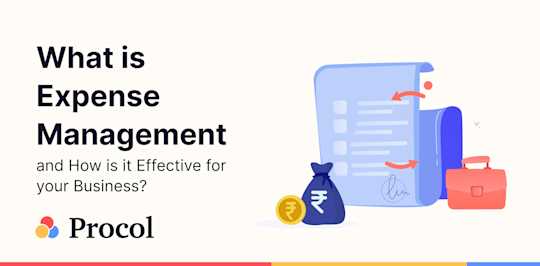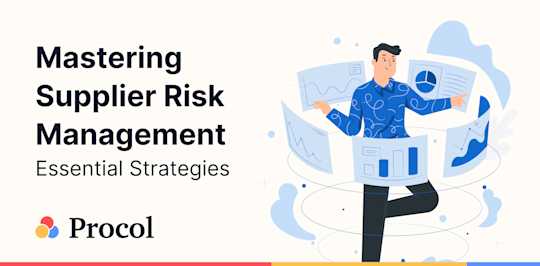Procurement Contract Types: What You Need to Know
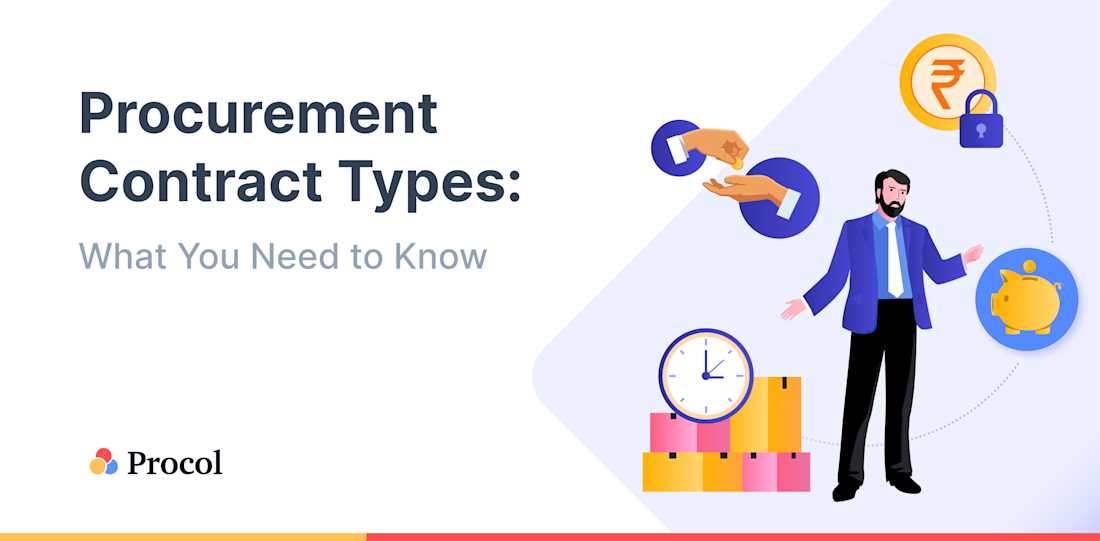
TABLE OF CONTENTS
Understanding contract management
Simply put, a procurement contract is a legal document that binds a buyer and seller, enforcing specific conditions. The seller agrees to fulfil the buyer’s request, and in turn, the buyer agrees to pay for the goods or services. All the terms and conditions governing the relationship with the supplier concerning procurement are outlined in the procurement contract within the procurement solution.

Usually, the procurement contract has the following information in detail:
- Performance and monitoring control ensures that both parties benefit from the contract.
- Receipt of supplied goods, their inspection parameters, and acceptance criteria to ensure that the supplied goods meet the standardised requirements.
- Contract termination details outline the procedure to be followed when either party wishes to end the contract for business reasons.
- Dispute resolution tactics when either party is dissatisfied with the relationship and wants to settle disputes instead of approaching the court.
- Payment agreements and financial information with a detailed procedure on invoicing, payment, and other preferences.
- Performance assurance information that both buyer and seller must comply with.
- Contract completion details along with a close-out option.
Different Types of Procurement Contracts
The type of procurement contract that you choose depends on your business goals, risk tolerance, and vendor relationship. A risk management policy explains what is expected from both parties. Once the procurement contract is signed, both buyer and seller must adhere to the regulations.
1. Fixed price contract
The most straightforward type of contract is the fixed price contract, where buyers and sellers agree upon a fixed price for the supplies. The buyer must meet the minimum order quantity to invoke this type of contract. Essential supplies crucial to the supply chain are usually secured under a fixed price contract that provides a cost benefit for the buyer. Both buyer and seller will get reasonable pricing, and the seller will get assured minimum order quantity.
There are three types of fixed price contracts:
* Firm Fixed Price (FFP)
The buyers and sellers have exact numbers on the agreement. The buyer will agree to purchase the minimum order quantity, and the seller will fix a reasonable price for the order.
* Fixed Price & Incentive Fee (FPIF)
FPIF contract provides an advantage to the supplier because the buyer agrees to pay an incentive apart from the fixed price. The supplier will get the incentive if he meets and exceeds the contract terms. Buyers will get an assured volume of their orders, and suppliers will benefit from the incentive for offering the item at a discounted price. This contract is usually used for high-demand items, and the buyer is looking to lock the price.
* Fixed Pricing with Economic Price Adjustment (FPEPA)
The FPEPA contract allows the seller to adjust the pricing if the production cost of the supplies varies. In this type of contract, a buyer and the seller will agree to a price that is fixed as long as the production cost remains the same. If the supplier proves that the production cost exceeded the agreed-upon value, they can increase the price. The contract helps the buyer lock in on an affordable price, and suppliers can protect their margins if they can justify increased production costs. Usually, FPEPA contracts are used for purchasing a pre-built product that the supplier wants regularly.
2. Cost Reimbursement Contract
When buyer and seller enter into a cost-reimbursement contract, the buyer will reimburse the capital cost that the seller invested in a product or a service during the course of the project.
There are four different types of cost reimbursement contracts:
* Cost Plus Fixed Fee (CPFP)
When buyer and seller agree to the CPFP contract, the buyer provides terms and conditions for a product, service, or project expected from the seller. Quality and quantity requirements are mentioned clearly in the contract. The seller should deliver the product, service, or project satisfying the underlined conditions, and the seller is responsible for the total cost involved in making the delivery. At the time of delivery, the buyer will inspect and verify the quality and quantity of the delivered product or service. If the delivered product is accepted, the buyer will reimburse the accrued production cost and pay an additional fixed fee for the seller, which is usually a percentage of the total cost. Suppose the delivered product is not of acceptable quality and violates the terms and conditions. In that case, the buyer can reject the delivery, and the seller has to bear the cost.
* Cost Plus Incentive Fee (CPIF)
The CPIF model is similar to the CPFP model, where the seller and buyer agree to terms and conditions in terms of the quality and quantity of the product. The seller should take care of the expenses until product delivery. If the buyer accepts the product, the buyer will reimburse the total cost and pay an incentive for the seller. On the other hand, if the product doesn’t meet the quality standards, the buyer can reject the delivery, but in the CPIF model, both buyer and seller have to split the expenses of the unsuccessful project.
* Cost Plus Award Fee (CPAF)
With a CPAF contract, the buyer agrees to reimburse the supplier’s cost and an award fee. The buyer determines this award fee.
* Cost Plus Percentage Of Cost (CPPC)
With the CPPC contract, the buyer is responsible for reimbursing the total cost of the product along with a percentage of the cost that is usually considered a profit.
3. Time And Materials (T&M) Contracts
Under the T&M contract, the buyer will pay the seller for the time and materials invested in the project. Buyers can include a threshold that the time and material quoted can’t exceed. This is essential to get a fair price and also to prevent fraud.
Conclusion
Different types of contracts have their own pros and cons, and using the right type of contract is the key to success. Your procurement solution will help you make the right choice.
Procol is the highest-rated procurement software that has helped businesses realise real-time cost savings. Schedule a demo with us to know how to set up different types of contracts in your procurement platform.
Get a Free Demo
We'd love to hear from you. Please fill out this form to schedule a demo with us. You can also give a call on +91 76666 82222
